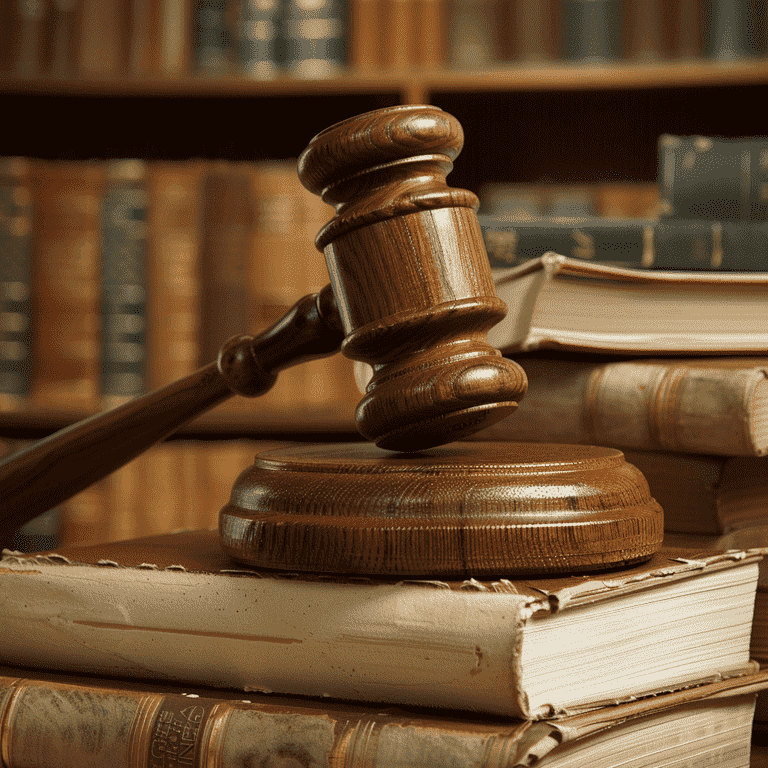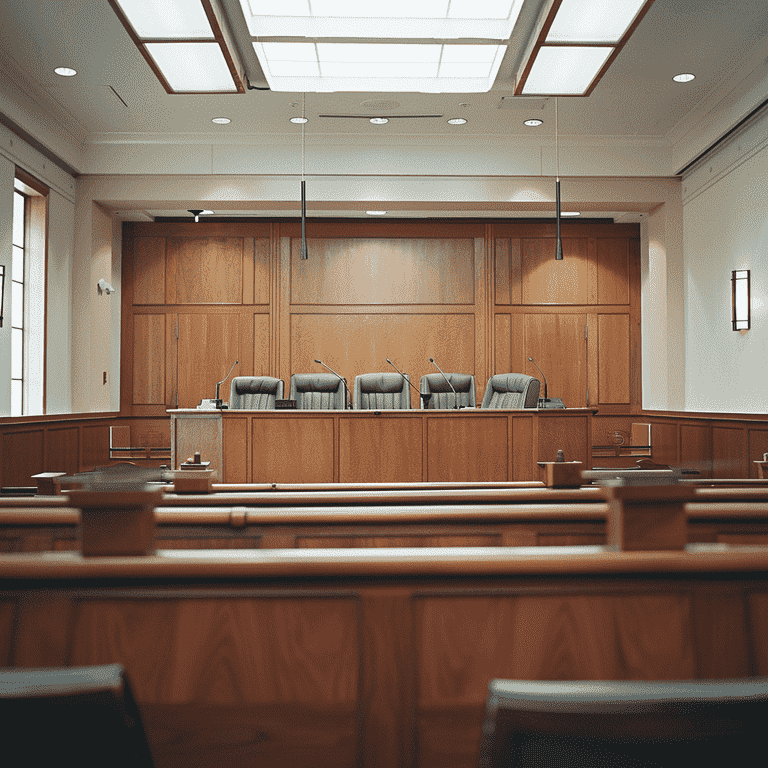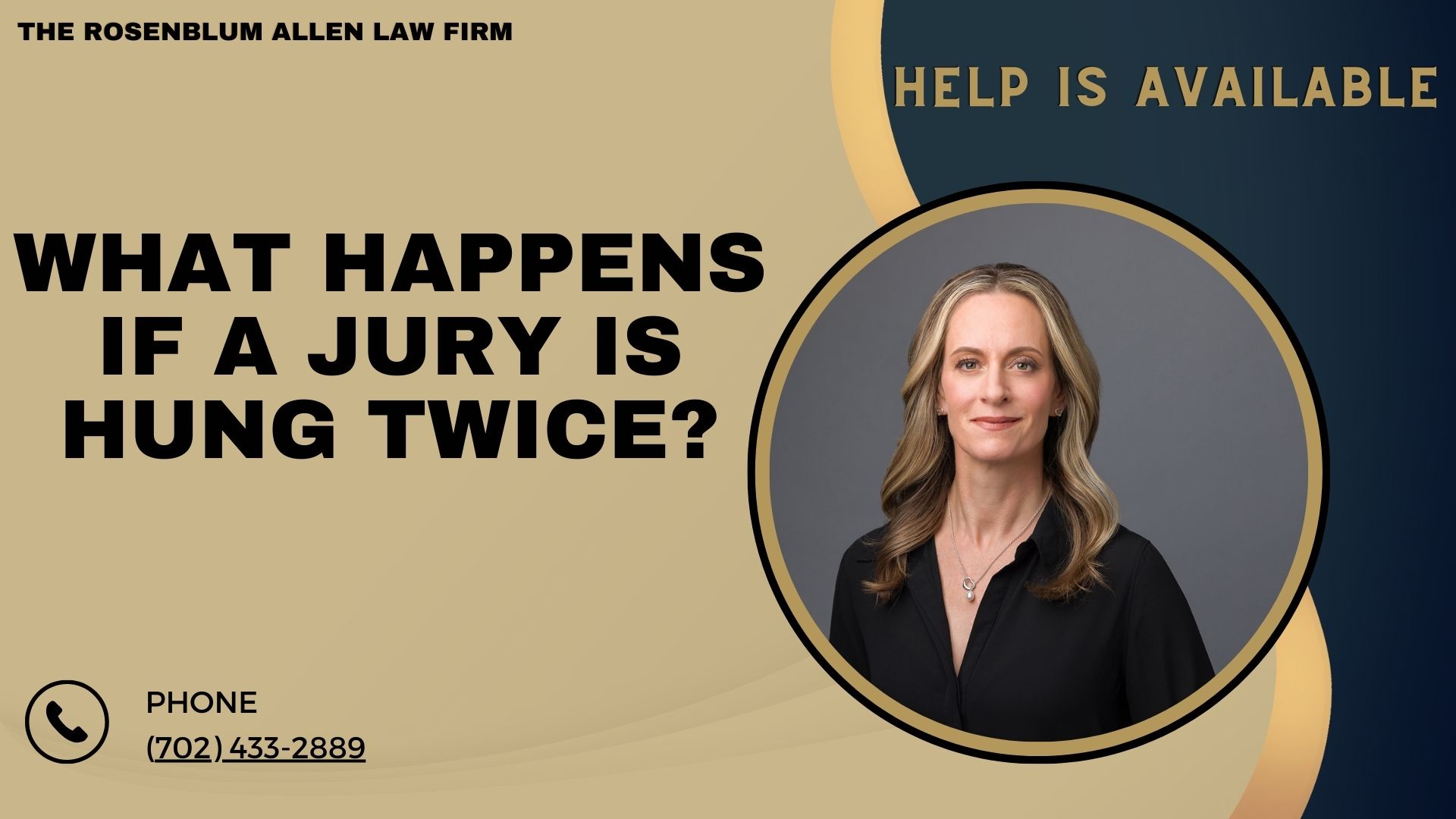Have you ever found yourself glued to a courtroom drama, heart pounding, as the jury returns to deliver their verdict, only to find out… they can’t decide? Now, imagine that happening not once but twice. It’s rare, but it does happen. This article dives into a whirlwind. It covers events and emotions on what happens if a jury is hung twice. It unpacks the legal, psychological, and societal meanings of this rare event.
 The Legal Framework Surrounding a Hung Jury
The Legal Framework Surrounding a Hung Jury
Definition and Criteria for Declaring a Hung Jury
A hung jury is often called a deadlock. It happens when a jury can’t reach a unanimous decision after much deliberation. This inability to agree on a verdict means the trial has a partial end. But what exactly leads to this situation?
The Role of Unanimity in Jury Decisions: In most criminal cases, unanimity is necessary for a verdict. This requirement ensures that the decision is beyond reasonable doubt.
Variances in Criminal vs. Civil Cases: While criminal cases typically require a unanimous verdict, civil cases might have more lenient standards, depending on the jurisdiction.
The Process After a Jury is Declared Hung for the First Time
When a jury cannot reach a unanimous decision, the court regains possession of the ball. Here’s what typically happens next:
Immediate Steps Taken by the Judge: The judge may ask if further deliberations could lead to a verdict or declare a mistrial outright.
Considerations for a Retrial:
The Prosecution’s Decision: The prosecutor must decide whether to retry the case, considering the strength of the evidence and the likelihood of a different outcome.
Legal Provisions and Timeframes for a Retrial: The law often sets specific timeframes within which a retrial must commence, designed to prevent indefinite delays.

The Second Hung Jury: Unpacking the Possibilities
Encountering a second hung jury creates more deep uncertainty. It also makes things more complex.
Immediate Reactions to a Second Hung Jury
The Legal Community’s Perspective: A second deadlock often leads to introspection within the legal community about the clarity of the law, the evidence presented, and jury selection processes.
Impact on the Defendants and Plaintiffs/Victims: For those directly involved, a second hung jury can be an emotional rollercoaster, extending the period of uncertainty and stress.
Legal Options Post-Second Hung Jury
After the dust settles from the second deadlock, what next?
Dismissal of Charges:
Criteria and Grounds for Dismissal: The judge may consider the case’s merits, the likelihood of a conviction in a new trial, and the interests of justice.
The Role of the Judge in Dismissal Decisions: Ultimately, the judge can dismiss the charges, ending the case without a verdict.
Another Retrial:
Factors Influencing the Decision for a Third Trial: The prosecution must weigh the emotional and financial costs against the public interest and the pursuit of justice.
Historical Precedents and Statistical Outcomes: While rare, third trials have occurred and can offer lessons on the complexities of jury decision-making.

Plea Bargains and Settlements
At this junction, parties might seek a middle ground.
Negotiation Processes Between the Parties: A hung jury signals a potentially unresolved legal battle, prompting negotiations for a plea bargain or settlement.
The Influence of Two Hung Juries on Plea Deals: The outcome of previous juries can significantly sway the terms of a plea deal, often favoring the defendant.

Implications of Multiple Hung Juries
A hung jury is a big deal. It can happen not once but twice. It sends ripples through the legal system. It affects everyone from the judge to the public. Let’s unpack the broader implications of this rare occurrence.
Impact on the Legal System
Many hung juries do more than extend the trial. They show how the judicial system works.
Court Resources and Public Perception: Each trial consumes time, money, and manpower. A second hung jury raises questions about the efficiency of the legal process and can shake public confidence in the system’s ability to deliver justice.
The Debate Over Jury System Reforms: Such cases often reignite discussions on whether the jury system needs tweaking. Should jurors be selected differently, or should the unanimity requirement be adjusted? These are complex questions with no easy answers.
Psychological and Social Effects on Involved Parties
The emotional rollercoaster doesn’t end with the legal implications. There’s an impossible-to-ignore human element.
The Emotional Toll on Defendants and Plaintiffs/Victims: Imagine the stress of living your life in limbo, your future hinging on the decision of twelve people, twice over. It’s a test of mental and emotional resilience for everyone involved.
Community and Media Reactions: High-profile cases with multiple hung juries often attract a media circus and public speculation, adding another layer of stress for the parties involved and influencing public opinion on the case and the legal system.

Case Studies: Lessons Learned from Past Instances
History often serves as our best teacher, and the legal world is no exception. We can examine case studies of trials with two hung juries. They give insights into how people navigated these tough situations.
Notable Cases with Multiple Hung Juries:
Case 1: Where persistence led to a conviction in a third trial.
Case 2: Where charges were eventually dropped after the second deadlock.
Outcomes and Subsequent Legal Actions: These cases show a range of possible outcomes, from eventual convictions to the dropping of charges, illustrating the unpredictable nature of retrials.
Analysis of Jury Deliberations and Decision-Making Processes: These cases teach us about the factors that can lead to a jury being hung, such as unclear laws, complex evidence, or strong biases.

Alternatives to Jury Trial in Complex Cases
Facing many hung juries, it’s worth exploring options other than jury trials.
Bench Trials: Advantages and Disadvantages
A judge makes the final decision in a bench trial. It offers a solution that avoids the challenge of getting jury agreement.
Advantages: Judges are legal professionals capable of navigating complex legal arguments and evidence, potentially reducing the chances of a deadlock.
Disadvantages: Some argue that this option needs more community representation inherent in a jury trial, possibly affecting the perceived fairness of the verdict.
Mediation and Arbitration as Solutions
Mediation and arbitration are options for civil cases. They are also used in some criminal matters.
Efficiency and Satisfaction Rates: These methods often lead to quicker resolutions and can leave the parties feeling more satisfied with the outcome, as they have more control over the resolution.
Compared to Jury Trials: While they offer benefits, it’s essential to consider the nature of the case and the parties’ willingness to compromise, which may not always be present.

Breaking It All Down
The aftermath was not just one but two hung juries. It reveals a maze of legal, emotional, and social complexities. This rare event is a mirror. It reflects the many sides of the justice system and the people it serves. We went from shock and confusion to a deep dive into outcomes, options, and implications. Few want to tread our path, but many find it fascinating.
A double-hung jury is a legal oddity. But, it’s also a testament to the pursuit of justice in an imperfect world. It challenges prosecutors, defense attorneys, and judges. It also challenges the accused to navigate a sea of uncertainty. They must hold onto hope for resolution. It tests the strength of victims seeking closure. And, the patience of a public watching eagerly from the sidelines. It also sparks discussions on our jury system’s effectiveness. It pushes for reflection and, maybe, reform.
Through case studies, we’ve learned from the past. Each trial has unique facts. But, they all share the thread of seeking justice. Some cases have spotlighted other options. These include bench trials, mediation, and arbitration. They offer different paths that might lead to better resolutions.
In closing, a jury hung twice shows that human judgment is complex. It also shows the legal system’s role in navigating it. The road to justice can be winding and hard. But, it also offers chances for reflection, learning, and growth. Reforming juries can do this. You can also try other dispute methods to resolve the issue. Just understanding human factors can do this. There’s always a way forward. It’s guided by the aim of serving justice and the community.
As we look to the future, let’s keep the lessons from these cases. Let’s use them to make sure our legal system keeps evolving. It should become more just, efficient, and reflect society.

Frequently Asked Questions
What does "unanimous verdict" mean, and why is it necessary?
A unanimous verdict requires all jurors to agree on a decision. It ensures a clear and definitive outcome, reducing the risk of wrongful convictions or unjust rulings.
Can a judge override a hung jury?
No, a judge cannot override a hung jury. When jurors cannot reach a unanimous decision, the judge declares a mistrial, leaving the prosecution to decide whether to retry the case.
How does a hung jury affect the defendant?
For the defendant, a hung jury prolongs uncertainty, leading to emotional strain and financial burden. While they avoid conviction, they may face another trial in the future.
What are the prosecutor's options after a hung jury?
After a hung jury, the prosecutor must decide whether to dismiss or retry the case based on factors like evidence strength and the likelihood of a new trial’s outcome.
Are there alternatives to retrial after a hung jury?
Yes, alternatives like plea bargaining offer resolutions outside of retrial, providing clarity for both parties involved.
How common are hung juries?
Hung juries are relatively rare, though their occurrence varies by jurisdiction and case complexity.
Can public opinion influence retrial outcomes?
While jurors are instructed to base decisions solely on trial evidence, public opinion and media coverage can influence views, prompting careful juror selection and instructions.
What happens after consecutive hung juries in civil cases?
In civil cases, consecutive hung juries may lead to settlements or bench trials, depending on jurisdiction and case specifics.
How does a hung jury impact victims or plaintiffs?
For victims or plaintiffs, a hung jury prolongs legal proceedings, increasing emotional stress and uncertainty about achieving justice.
What measures are taken to prevent hung juries?
Efforts to prevent hung juries include thorough juror screening, clear judge instructions, and simplifying complex evidence. However, human judgment remains unpredictable, allowing for only partial prevention.

Additional Resources for You
In your journey through challenging times, it’s crucial to have the right resources and legal expertise at your disposal. Our lead attorney, Molly Rosenblum Allen, Esq., understands the breadth of legal issues you might face and has meticulously crafted a suite of resources to assist you. Whether you’re grappling with criminal charges, navigating DUI laws, or dealing with more personal legal battles, we’re here to provide the guidance and support you need.
For comprehensive defense against criminal charges, explore our dedicated Criminal Defense Attorneys page for vital information and support.
Facing DUI charges? Our Las Vegas DUI Lawyer resource offers effective legal advice to help you through this challenging time.
If you’re involved in a domestic violence case, our Domestic Violence Lawyer Las Vegas page provides essential insights and legal strategies.
Dealing with drug possession accusations? The Drug Possession Lawyer section is tailored to guide you through your legal journey.
For those accused of sex crimes, our Sex Crimes Attorney page is a crucial resource for navigating the complexities of your case.
Our CPS Defense Attorney resource is specifically designed for cases involving child abuse and neglect, offering dedicated support and legal insight.
Minor infractions can still have major implications. For misdemeanor charges, visit our Misdemeanor Lawyer page for effective advice.
If you’re facing legal issues related to a warrant in Las Vegas, our Las Vegas Warrant Defense Attorney resource is here to help.
Violations of probation in Las Vegas require specialized legal assistance. Our Las Vegas Probation Violation Attorney page provides the expertise you need.
For those accused of theft, our Theft Crime Defense Lawyer resource offers targeted legal support.
Our Kidnapping Lawyers are experienced in handling the intricacies of kidnapping charges, providing you with the representation you deserve.
Young individuals facing legal troubles can find solace and guidance through our Juvenile Defense Lawyers page.
Lastly, for legal issues concerning firearms in Las Vegas, our Firearms Lawyer Las Vegas page is an essential resource.
Remember, you’re not alone. Molly Rosenblum Allen, Esq., and The Rosenblum Allen Law Firm are committed to standing by your side, offering our expertise and support through every step of your legal journey.

Outside Resources for You
American Bar Association: A comprehensive source for finding legal resources, including guides on family law and divorce. Visit the American Bar Association.
National Coalition for the Homeless: Offers information and resources for those facing homelessness, an issue closely tied to discussions around vagrancy. Explore the National Coalition for the Homeless.
Substance Abuse and Mental Health Services Administration (SAMHSA): Provides resources for individuals struggling with substance abuse and mental health issues, which can be factors in cases of vagrancy. Check out SAMHSA.
National Domestic Violence Hotline: A vital resource for individuals facing domestic violence situations, offering support and guidance. Reach out to the National Domestic Violence Hotline.
The Innocence Project: Works to free the staggering number of innocent people who remain incarcerated, and to bring reform to the system responsible for their unjust imprisonment. Learn more about The Innocence Project.
FindLaw: A leading provider of business law solutions and a valuable resource for legal information on a variety of topics including property law and criminal defense. Visit FindLaw.
National Association of Criminal Defense Lawyers (NACDL): An organization that aims to ensure justice and due process for persons accused of crime or other misconduct. Explore NACDL.

A Special Message from Our Lead Attorney, Molly Rosenblum Allen, Esq

Dear Readers,
Thank you sincerely for taking the time to engage with the resources we’ve compiled. We know that legal rules can be tough to navigate. We hope the info we provided helps during a hard time in your life.
If you need more help or are ready to address your legal situation, contact me and my team. You can contact us at (702) 433-2889. We’re here to listen. We want to understand your unique situation. We will offer the skilled representation you deserve.
We have worked hard to provide useful insights through these resources. But, a personal consultation tailored to your needs has no substitute. The team at The Rosenblum Allen Law Firm is dedicated. They provide thorough legal support. Years of experience and a deep commitment to our clients inform it.
Thank you once again for your time and trust. We look forward to the opportunity to assist you.
Warm regards,
Molly Rosenblum Allen, Esq.



